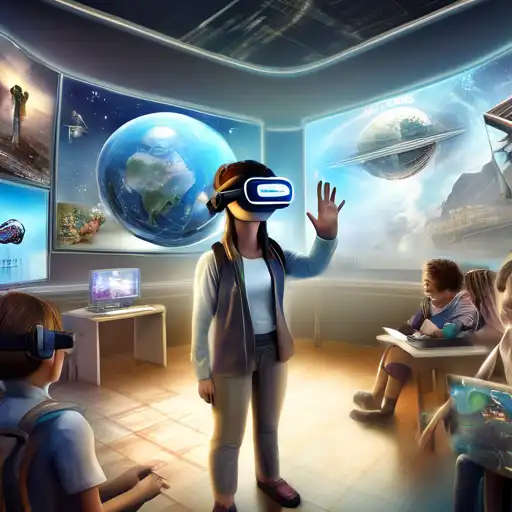Introduction to Virtual Reality in Education
Virtual Reality (VR) is rapidly transforming the educational landscape, offering immersive learning experiences that were once unimaginable. This technology is not just a tool for entertainment but a powerful educational instrument that can enhance understanding, retention, and engagement among students of all ages.
The Benefits of VR in Learning Environments
VR brings a host of advantages to the table, including but not limited to:
- Enhanced engagement through interactive and immersive content.
- Improved retention rates by simulating real-life scenarios.
- Accessibility to experiences that are otherwise impossible or impractical in the real world.
- Customizable learning experiences to cater to individual student needs.
Real-World Applications of VR in Education
From virtual field trips to complex surgical simulations, VR is making waves across various educational sectors. Here are some notable applications:
- Medical Training: Students can perform virtual surgeries, offering a risk-free environment to hone their skills.
- Historical Exploration: Imagine walking through ancient Rome or witnessing the signing of the Declaration of Independence firsthand.
- Science and Engineering: VR allows for the manipulation of molecular structures or the construction of virtual models.
Challenges and Considerations
Despite its potential, VR in education faces several hurdles, including high costs, the need for technical expertise, and concerns over screen time. However, as technology advances and becomes more accessible, these challenges are gradually being overcome.
The Future of VR in Education
The future looks bright for VR in education, with ongoing developments aimed at making it more affordable, user-friendly, and effective. As we continue to explore the possibilities, VR stands to redefine the boundaries of traditional learning methods.
For more insights into how technology is shaping education, check out our articles on Education Technology and Innovative Learning.
Conclusion
Virtual Reality is undeniably the next frontier in education, offering unparalleled opportunities to enhance learning and teaching. By embracing this technology, educators can provide students with a rich, engaging, and effective learning experience that prepares them for the future.
